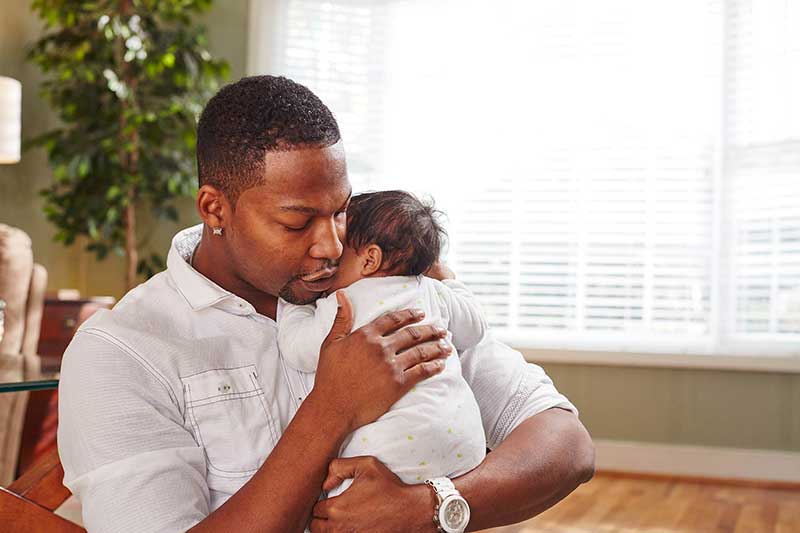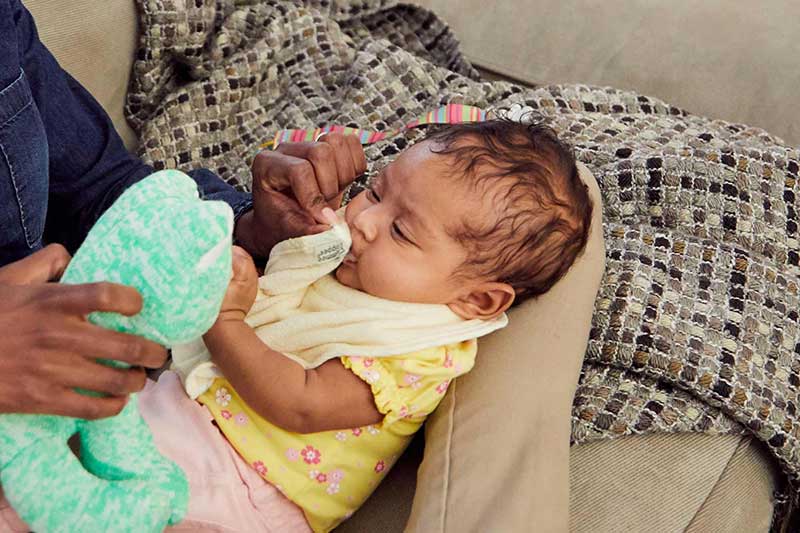Are You Overfeeding Your Fussy Baby?
Now that your baby is here, you want to do everything you can to help them feel comfortable and content. When they're fussy, feeding them may offer a quick fix; however, if they're not actually hungry, you may end up overfeeding them.
How you feed your baby from day one can affect their relationship with food for life. Help your baby develop a healthy relationship with food by paying attention to and responding to their fullness and hunger cues.
In this article:

Reasons why your baby may be crying
Crying is your baby’s communication superpower. When a baby's cries are loud and stressful, adults are more motivated to help them.
As you learn your baby’s cues and respond appropriately, they will cry less.* That’s why it’s so helpful to understand that your baby isn’t cranky … they need something.
Babies may cry for many reasons, not just when they’re hungry. Is your baby:
- Too hot or cold?
- Bored or tired?
- Overwhelmed and overstimulated?
- Uncomfortable or scared?
And, of course, your baby might be hungry. Once you can recognize your baby's cries, calming your fussy newborn will come much more naturally.
*This applies to a healthy, full-term baby, not a baby who is premature or one who has colic, reflux or another medical condition.

Ways to soothe without overfeeding your baby
Try these tips to soothe your baby:
- Reduce stimulation. Turn or move baby away from a busy environment, like a room with older kids playing. In public, take your baby to a quieter spot, and sing to or rock them.
- Play with them. Try making eye contact and talking to them, showing them black-and-white or brightly colored pictures or toys, shaking a rattle or showing baby their reflection in the mirror.
- Use repetitive motion with soft sounds. Think rocking, bouncing, rubbing their back, speaking or singing softly, over and over.
- Find a routine that works for your baby. For example, some babies like to play, sleep, eat and repeat.
- Try a pacifier. Babies are born to suck, so pacifiers are often soothing.
- Help them sleep. Babies can only stay up for a few hours at a time; they might be irritable because they need help falling asleep. Try the tips above to help baby nod off without a fuss.
Sometimes babies cry, even after you’ve done everything you can to console them. Many babies have a fussy time of day. Or your baby might be gassy or sick.

Look for these hunger cues
Once you know what to look for, your baby’s feeding cues are fairly obvious. Hungry babies might cry, but remember to look for other, earlier hunger cues, like:
- Bringing her hands to their face
- Rooting (looking for the nipple with their mouth)
- Making sucking motions and noises
- Sucking on their fingers or putting their fist in their mouth
- Flexing their hands, arms and/or legs
- Clenching their fingers or fists over their chest or tummy
- Fast breathing
Crying is a late hunger cue, so try feeding your baby when they show these early signs, instead of following a strict schedule. If your crying baby doesn’t show signs of hunger, their cries are probably due to something else. If your baby continues to cry shortly into the feeding, they probably weren't hungry. Rather than encouraging them to keep eating, try one of the soothing techniques mentioned above.
Still worried about your baby’s crying? Check with your pediatrician.

